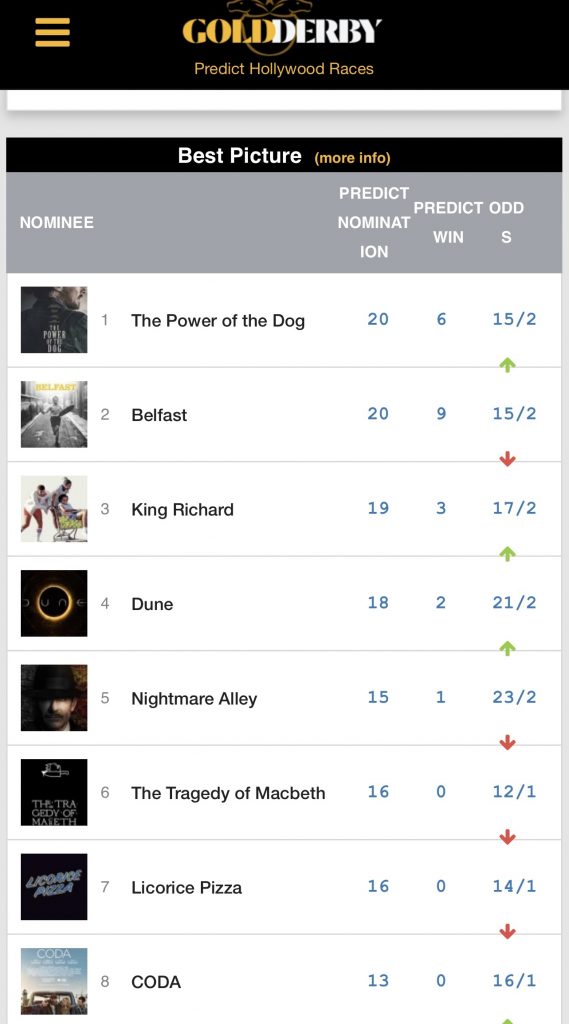21 Gold Derby forecasters have stated preferences in the race for Best Actress Oscar. The overwhelming favorite is Kristen Stewart‘s performance as Diana, Princess of Wales in Spencer, and so she’s sitting atop 13 lists.
Except the most deserving recipient for the ’21 and ’22 Best Actress Oscar is Penelope Cruz in Pedro’s Parallel Mothers — theres no question about this, none whatsoever.
How many GD smarties have Cruz at the top of their lists? Two — Variety‘s Tim Gray and Queerty’s Michael Musto. There should be more. Cruz’s performance is incontestably fuller, richer, tethered to common experience than Stewart’s. Comparing the two isn’t allowed — entirely different leagues.
Stewart’s submission to Spencer‘s concept — Diana was half-mad, besieged by visions and nightmares, lost in her own head — is total and therefore admirable; you could even call what she does mesmerizing. (being a stickler, I can’t apply that term.) But she’s mainly being favored because critics and public alike are still Diana-struck (they all want to curtsy and bow) and because Spencer declares that the royal family members were bloodless ghouls, and this synchs with current wokester views.
Plus there’s Stewart’s LGBTQ profile and her two-decade career besides (plugging away since 2002’s Panic Room, only 31 years old).
Nagging problem: A few brave critics who’ve seen Pablo Larrain’s film have honestly shared what they feel about it. The fact is that Spencer is an oppressive and smothering thing to sit through. It literally gives you a kind of headache. This doesn’t seem to bother Stewart’s supporters, but in the old days (i.e., before 2015) if a movie really stunk then the Oscar chances of this or that performer in said film would be negatively affected. Not so much any more, or so it would seem.
Stewart is a respected actor. She’s been in a few half-decent films (Welcome to the Rileys, Clouds of Sils Maria, The Runaways, Cafe Society) and also made a lot of stinkers. Spencer is one of them. How many truly awesome, artistically approved knockout films has Stewart made in her life? Exactly one — Olivier Assayas‘ Personal Shopper.
13 for Kristen Stewart. 3 for Lady Gaga. 2 for Olivia Colman, 2 for Penelope Cruz, 1 for Jessica Chastain.
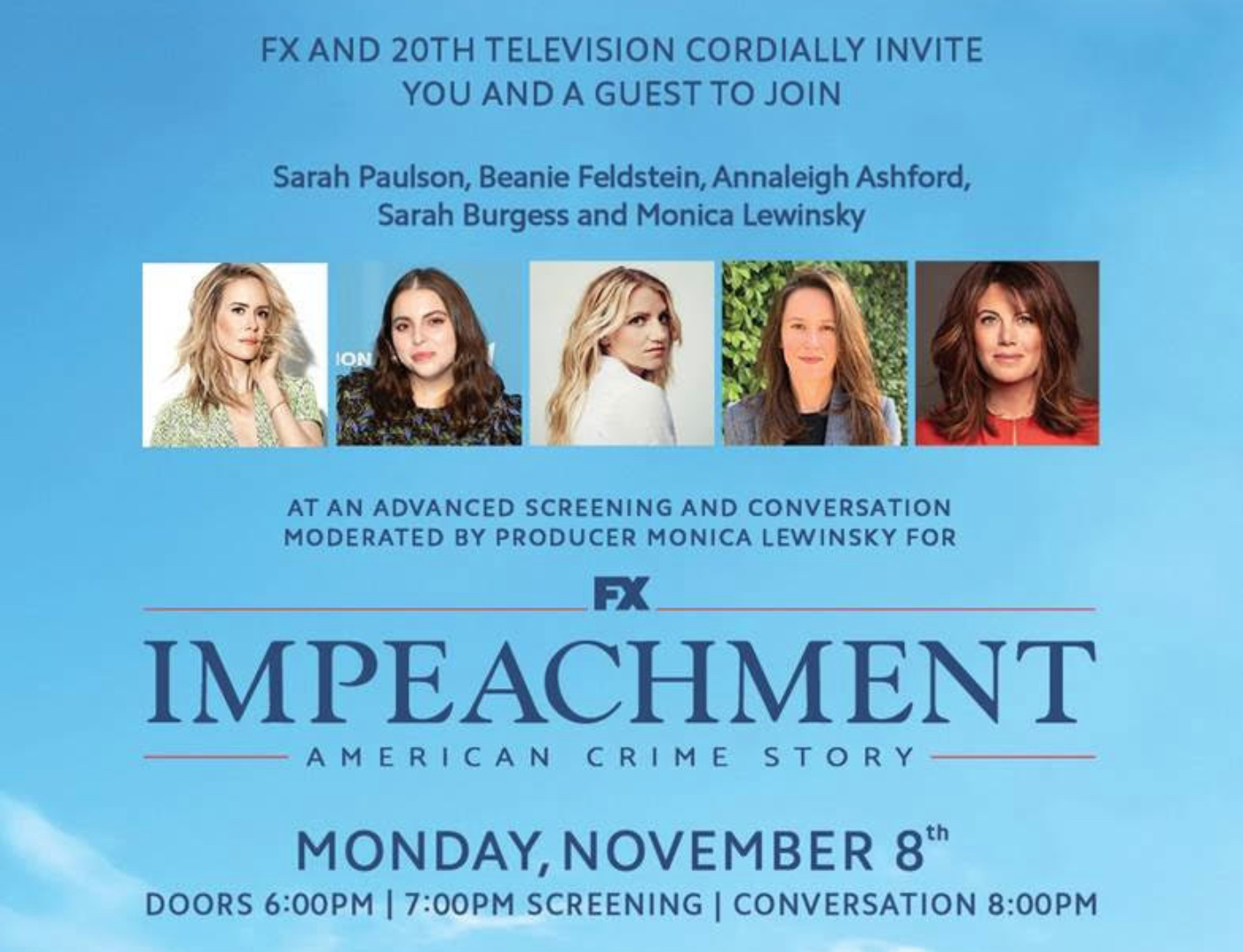

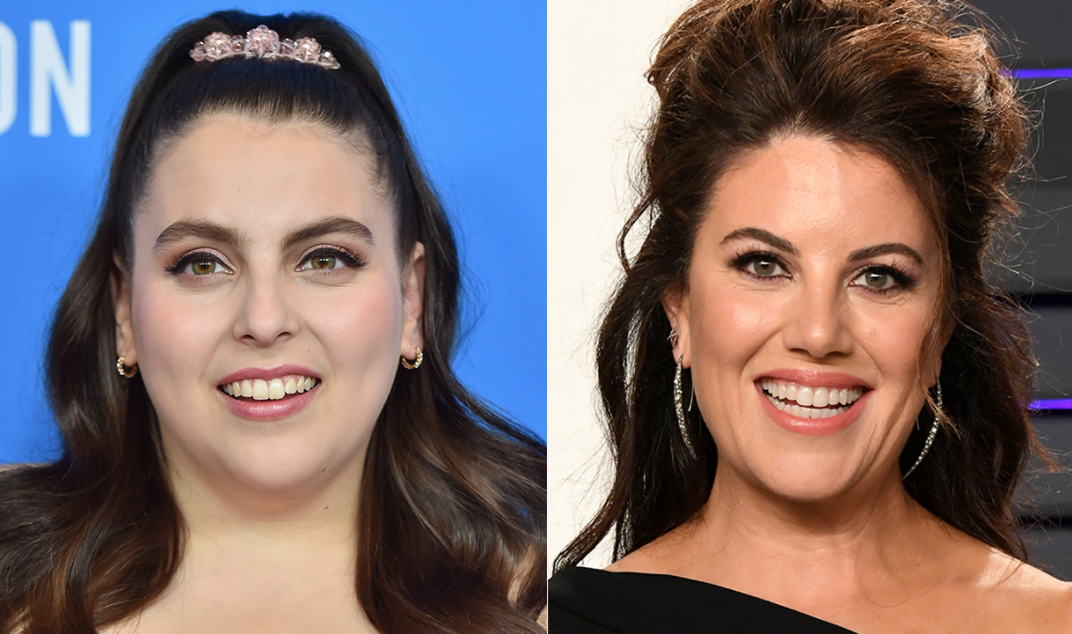
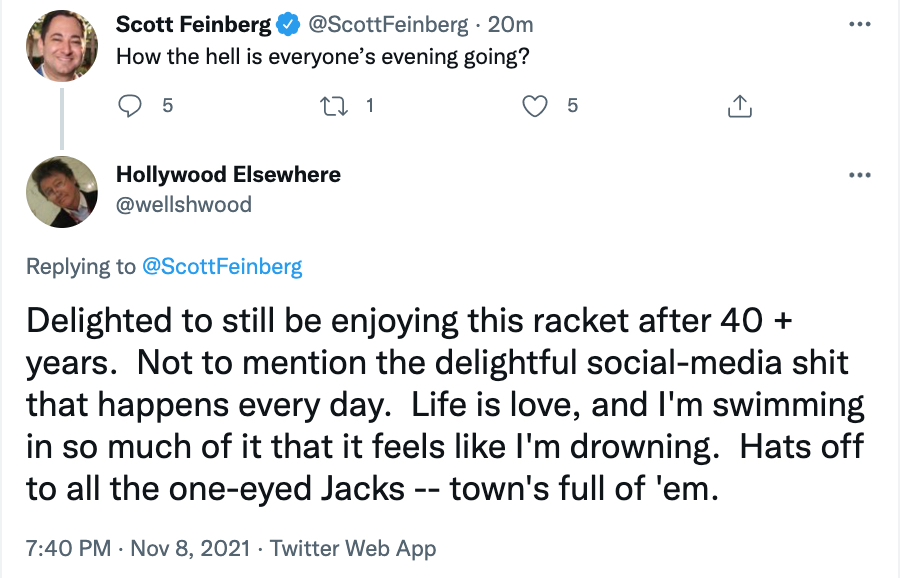
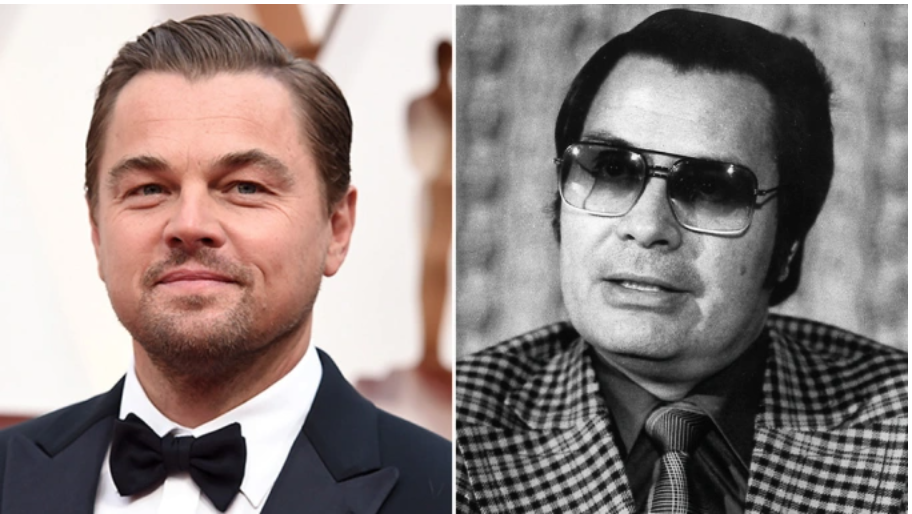

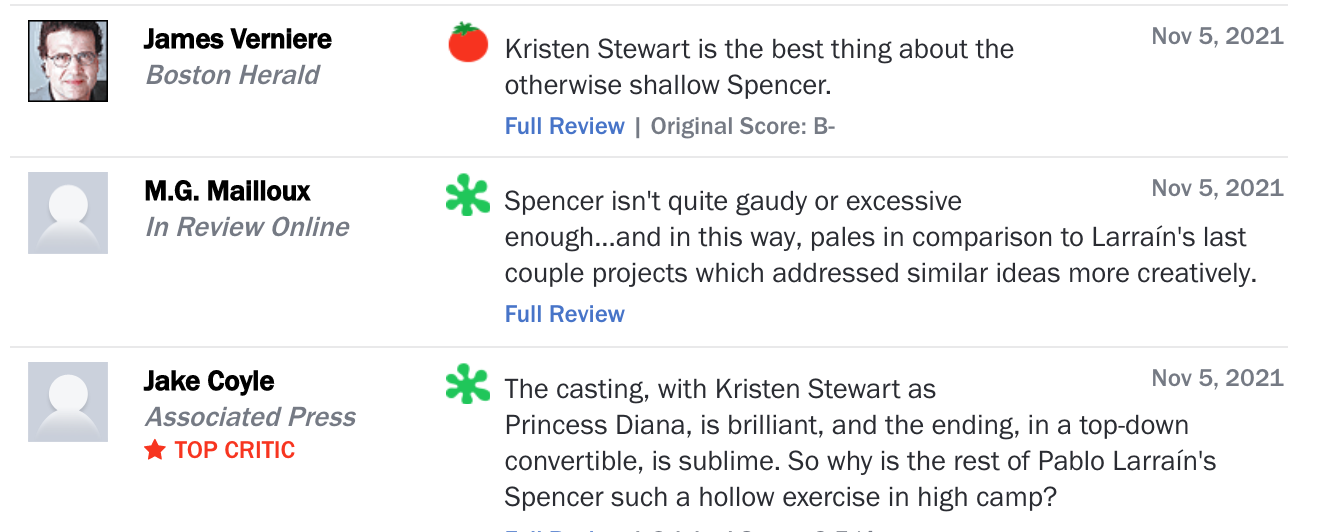
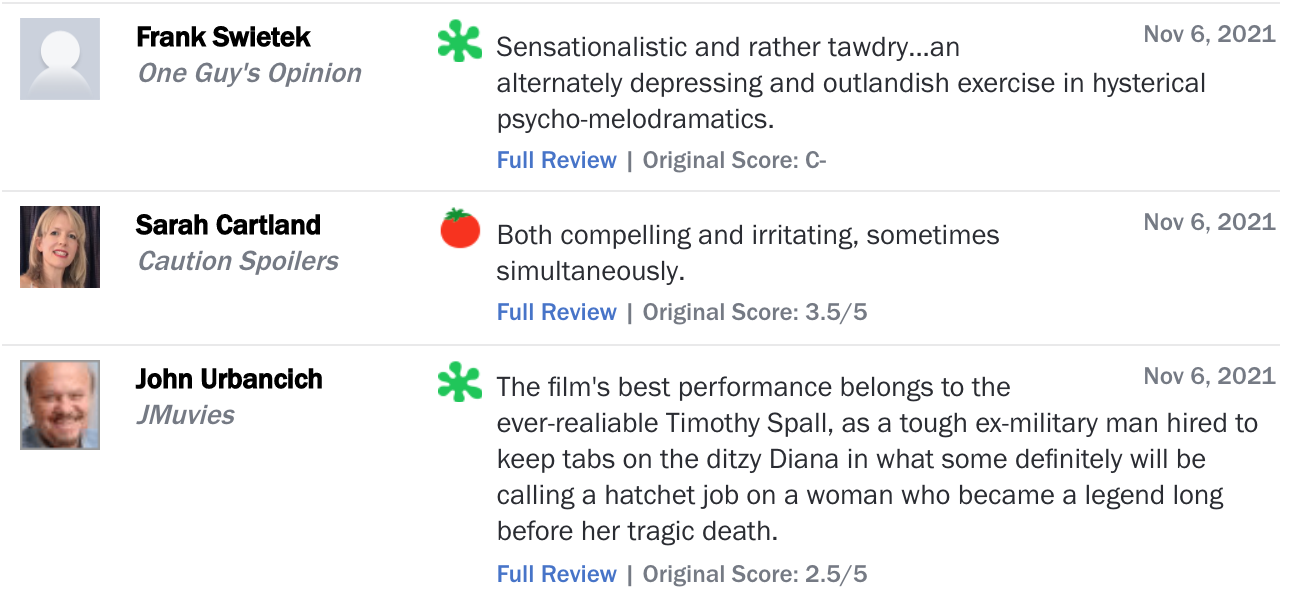
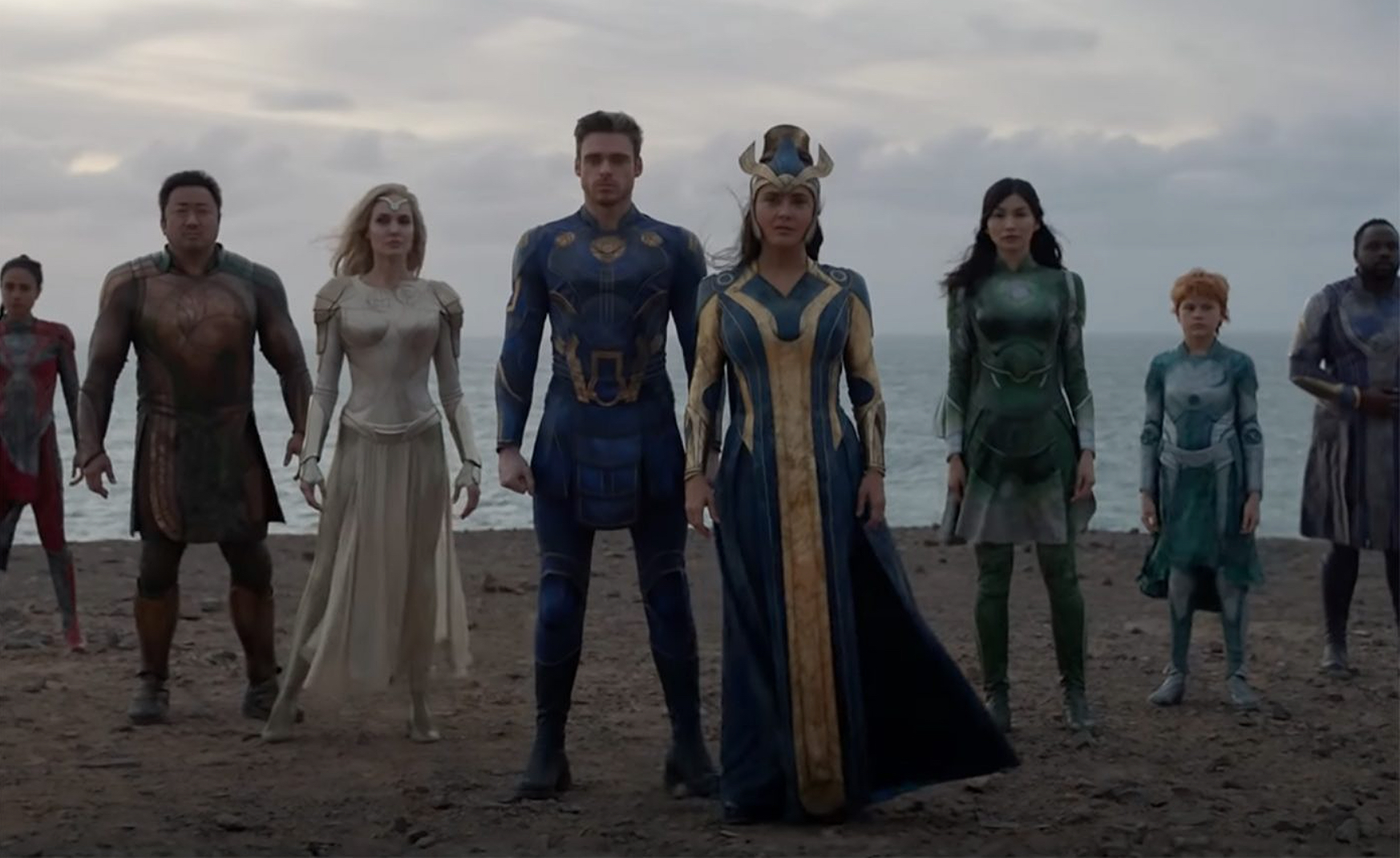
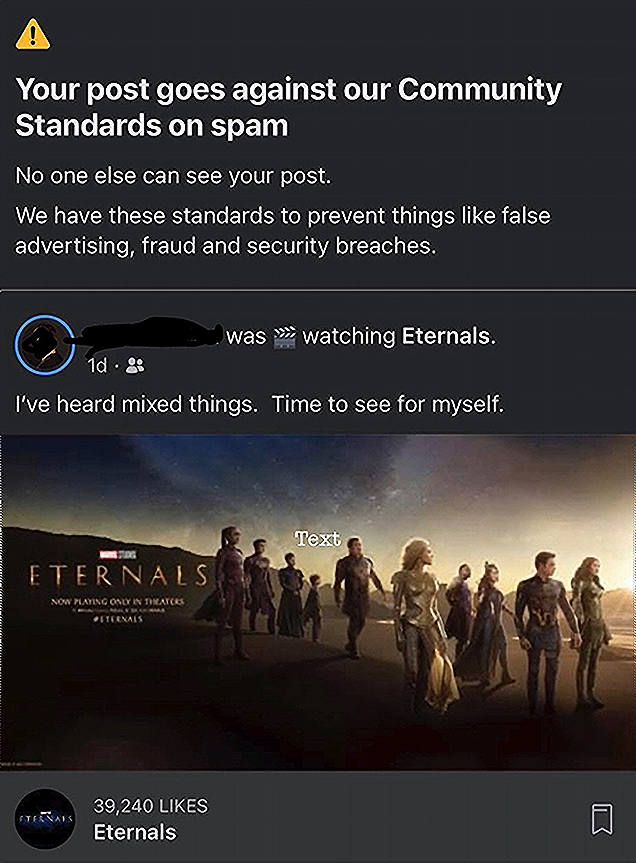
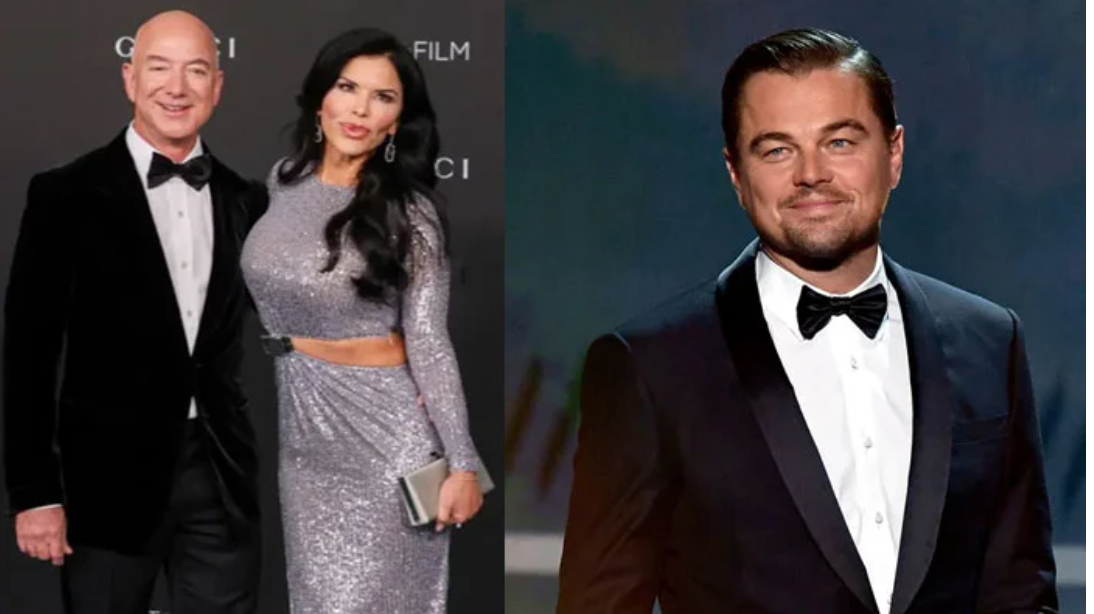
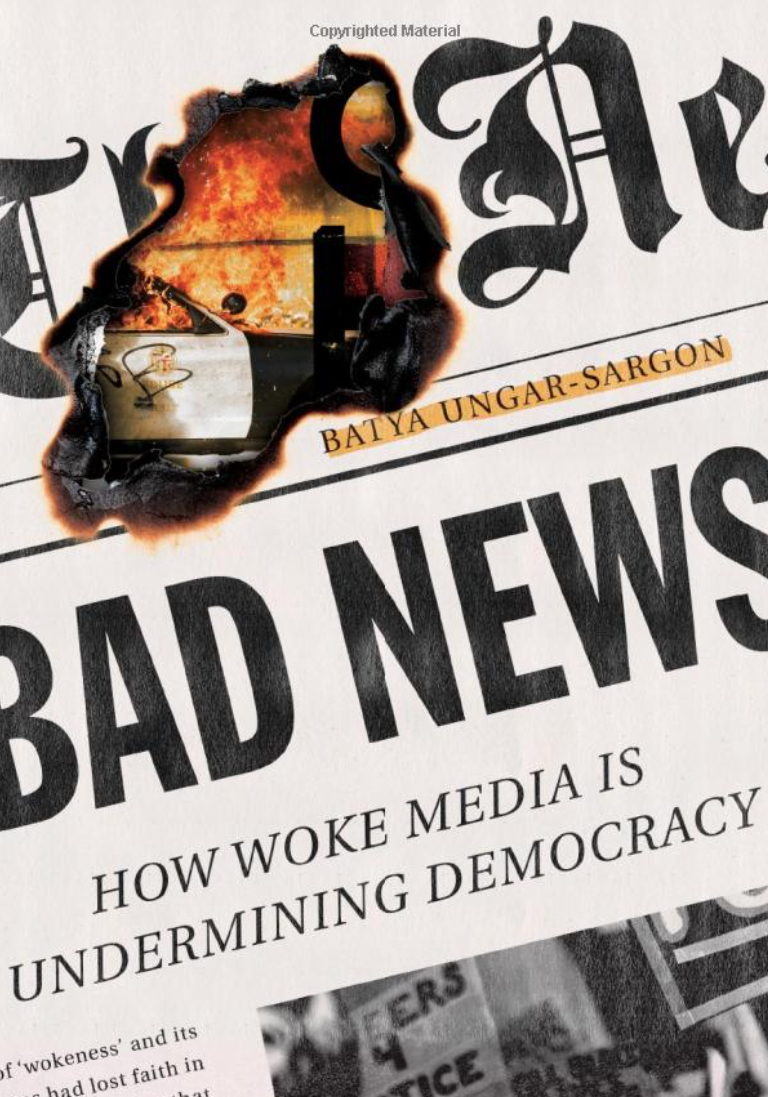 my n
my n